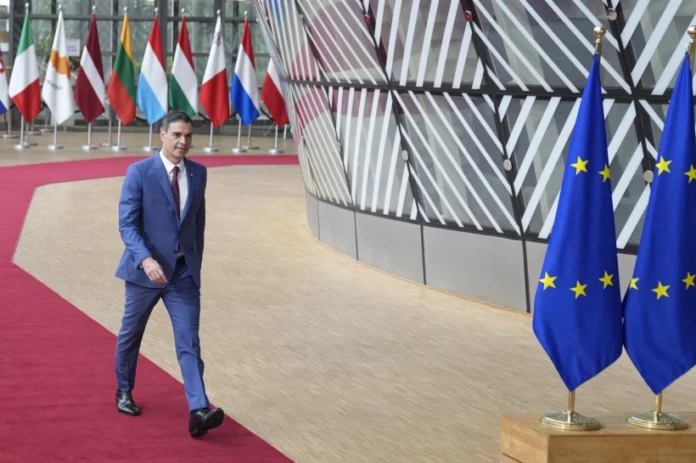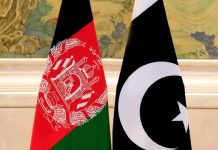MADRID(AFP)-Spain’s Prime Minister Pedro Sánchez kicked off Spain’s six-month presidency of the European Union with a swift trip to Kyiv on Saturday, emphasizing the bloc’s support for Ukraine amid Russia’s invasion. Sánchez arrived in the Ukrainian capital via train from Poland, and he is set to address Ukraine’s parliament and meet with President Volodymyr Zelenskyy. A joint news conference is scheduled to take place following their meeting.
The visit was announced by Zelenskyy during a summit in Brussels, where he underscored the significance of the visit and the next six months for Europe. He also highlighted the need to commence negotiations for Ukraine’s potential entry into the EU.
Sánchez, speaking in Brussels, stated that “the war in Ukraine will be one of the great priorities of our presidency,” with a focus on maintaining unity among member states. This visit marks Sánchez’s third trip to Kyiv since Russia’s full-scale invasion began in February 2022.
Upon his return to Madrid on Sunday, Sánchez will meet with European Council President Charles Michel ahead of the arrival of European Commission President Ursula von der Leyen and the college of EU commissioners.
In addition to Ukraine, Spain aims to make progress on various significant EU matters during its presidency, which concludes on December 31. Sánchez believes that the EU can finalize a contentious migration pact despite ongoing differences within the 27-nation group, particularly with Poland and Hungary. Recently, EU countries reached an agreement on asylum law reform, which includes a plan to share responsibility for unauthorized migrants entering Europe. Only Poland and Hungary opposed the agreement.
EU lawmakers have cautioned that this may be the final opportunity to resolve the issue before EU-wide elections in a year’s time, where migration is likely to be a prominent issue once again.
Spain’s rotating presidency coincides with an early general election scheduled for July 23, which polling suggests may result in the ousting of Sánchez’s leftist coalition government and the potential formation of a conservative administration or a coalition with far-right elements, reflecting a trend seen in several European countries.
Sánchez aims to focus on rebuilding intra-European supply chains to prevent shortages and ensure energy sovereignty. This includes establishing European leadership in artificial intelligence and digital security.
Spain also anticipates that the EU-Latin America summit, scheduled for July 17-18 in Brussels and the first in eight years, will represent a significant advancement in relations between the two regions and lead to a robust investment agenda with Latin American and Caribbean nations.
Furthermore, Spain seeks progress within the EU regarding the green transition and reform of the electricity market. The country boasts considerable experience in the sector as it forges ahead with the rapid implementation of solar, wind power, and green hydrogen installations.






